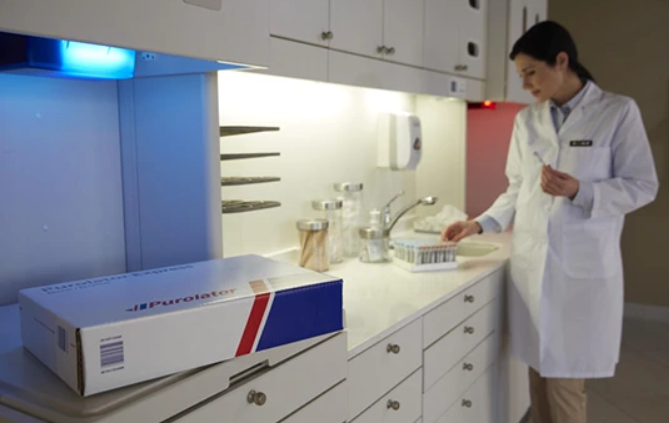
New Survey Highlights Misconceptions about Family Planning among Women with Relapsing Forms of Multiple Sclerosis (RMS)
88% of women with RMS were concerned they would not be able to have children, despite studies that show otherwise
Teva Pharmaceuticals Europe B.V. today announced results from a European survey of 1,000 women diagnosed with relapsing forms of multiple sclerosis (RMS) in the last five years that suggests they are insufficiently informed about family planning, and would like to receive more information and support from healthcare professionals (HCPs). To address this unmet need, Teva has partnered with touchNEUROLOGY’, online publication partner to European Neurological Review, to publish a ‘MS and Family Planning Toolkit.’ The toolkit resources help support a fuller dialogue on family planning between women with MS and their HCPs, and are available for download at www.toucheurology.com/familyplanningwithms for women with MS and www.touchneurology.com/msfamilyplanningtoolkit for HCPs.
MS is a chronic, progressive neurological disease most prevalent amongst women of childbearing age. Women with MS are just as likely to conceive and have healthy children as anyone else, yet 88% of the women surveyed had concerns that they would not be able to have children. In addition, 62% of women with RMS who were concerned about their ability to have children, were also concerned they had the potential to pass the disease on to their children, even though MS is not considered to be hereditary. The survey also suggests that communications about family planning could be improved between women with RMS and their HCPs, which could be the reason why these misconceptions persist. More than 1 in 3 (35%) women indicated not having spoken with their neurologist/MS specialist about family planning, and more than half (57%) indicated not having spoken with their general practitioner (GP), despite their concerns.
‘A diagnosis of multiple sclerosis can raise questions for a woman with regards to contraception and family planning. We know that for most women with MS, the condition does not increase pregnancy complications in general,’ said Elisabeth Kasilingam, Managing Director, European Multiple Sclerosis Platform (EMSP), a pan-European patient advocacy group with a growing network of 40 member societies in 35 European countries. ‘Women with MS need access to qualified health care professionals, support and quality information. As an advocate for better patient care, EMSP welcomes additional information resources on these issues’.
Access to more, and better information was requested by 81% of the women surveyed, so that they could be better informed about their family planning choices. In fact, 4 in 5 (82%) European women with RMS wish, in retrospect, that they had discussed the following family planning topics earlier, preferably at diagnosis:
– what to expect during pregnancy (33%),
– symptom dormancy during pregnancy (33%),
– treatment options while trying to conceive (32%)
– what to expect during delivery (32%)
‘We are always trying to better understand all aspects of MS and we commissioned this survey to explore how women with MS cope with family planning,’ said Umberto Comberiati, Commercial Strategy and Operations, Europe at Teva Pharmaceuticals.’We were really surprised that misconceptions about family planning continue to persist despite medical advances in the MS field. We are committed to ensuring that women with MS and their HCPs are given access to the resources they need, and for this purpose we have partnered with touchNEUROLOGY’ to empower women with MS and their HCPs to engage about this important topic.’
The ‘MS and Family Planning Toolkit’ published by touchNEUROLOGY’ in partnership with Teva can be downloaded at www.toucheurology.com/familyplanningwithms for women with MS and www.touchneurology.com/msfamilyplanningtoolkit for HCPs. The resources were intended to address the misconceptions highlighted and spark deeper dialogue between women with MS and their HCPs, and include:
Family planning questions for women with MS to ask their healthcare team
Facts on MS and family planning for women with MS
Tips for women on family planning with MS
HCP guide to survey results and patient conversation
About the MS and Family Planning Survey
The multi-country survey was conducted by Wakefield Research (www.wakefieldresearch.com) and initiated and funded by Teva Pharmaceuticals. The countries surveyed were Germany, the Netherlands, Italy, Spain and the United Kingdom. 1,000 women (200 from each of the 5 countries) aged 25-35, who were diagnosed with relapsing forms of MS in the last 5 years, were sampled. The survey was completed using an email invitation and an online survey between 10 August and 1 September 2017. The margin of error for the survey was +/- 3.1 percentage points overall and +/- 6.9 percentage points in each country.
About Teva
Teva is among the top 15 global pharmaceutical companies globally, delivering high-quality, patient-centric healthcare solutions used by approximately 200 million patients in 60 markets every day. Teva produces a leading innovative treatment for multiple sclerosis and has late-stage development programs for a range of disorders of the central nervous system, including movement disorders, migraine, pain and neurodegenerative conditions.
With its European headquarters in Amsterdam, the Netherlands, Teva is also the world’s largest generic medicines producer, leveraging its portfolio of more than 1,800 molecules to produce a broad range of products in nearly every therapeutic area. Teva draws on its specialty and generics capabilities to seek new ways of addressing unmet patient needs by combining drug development with devices, services and technologies. Teva’s net revenues in 2016 were $21.9 billion (approximately £20.8 billion). For more information, visit http://www.tevaeurope.com/news.


















